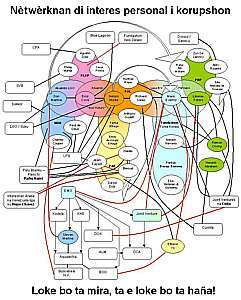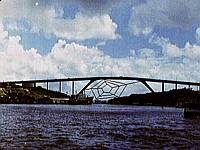

Economy
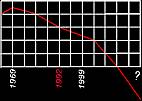
Where will it all end?
Free investing advice: Don't Do It!
News Flash
In August 2006, Central Bank director Tromp stated that in 2004 GNP growth had been 1%, and in 2005 1.5%. As a result, 2004 unemployment of 15.1% grew to 16.3% in 2005. Inflation more than doubled, from 1.5% in 2004 to 3.2% in 2005.
Just kidding?
Wish we were kidding. Since the government started turning on the thumbscrews by raising taxes where they could, and then some, business inversely went down. About 40 cents of every guilder spent goes to the government. This has become trying to wring water out of a long-dry mop; there just is nothing left in there.For instance, in 1989 new coins were introduced. In 2002 coins minted in 1994 were still being distributed - that is how little cash money there had been flowing around here since 1993. National growth in 2002 was a full 0.7%, first time in years! The first newly minted guilder coins are from 2003; it has taken nine years before the stock was exhausted. (You can figure how this has cost some extra money on accumulated interest on money spent on minting coins; that doesn't come cheap.)
Even the Purchase Tax publican is feeling the pinch, believe it or not. Money was lacking to print up a year's supply of monthly declaration forms, so everybody got only six for 2004; guess who'll pay for the second mailing and extra Kraft envelopes? Right!
CPA Curaçao Port Authority got a monopoly to operate in the harbor in 1991, in a combination with Curaçao Port Services and Antillean General Transport, in the hands of 5 families. The license was for ten years and is renewed every ten years.
In November 2006, foundation Na Vanguardia di Rekursonan di Kòrsou [vanguard for Curaçao resources], represented by ex minister Jules Eisden, lodged a complaint against CAP with the ombudsman, claiming this construction was illegal and that specifically the renewal is illegitimate. Both gezaghebber and gouverneur have refused to follow up on an earlier complaint, when it turned out
all documents have disappeared without a trace from the BC [island government] archives.(However, the notary still has them and is quite willing to make them available. Ouch!)Eisden'sfoundation got nowhere with lodging legal complaints as the prosecutor found that this should be a government action. Eisden partly agrees, but in that case feels individual members of the government bodies should be prosecuted for their illegal actions.
harbor entrance
In World War II,
among the 10 top harbors in the world
(my, how times have changed)
Admittedly, in actual fact the harbor was one of the few 2001 money-makers. Curaçao Port Authority is owned by the government. There now are official protests against alleged political fraud and corruption in CPA. Even worse, in 2003 they lost money, largely because the activities of Curaçao Tow Company (which they took over from Smit International in that same year). The Venezuela oil strike was pretty bad for business, too.
Curaçao harbor was the first in the world where burning dirty fuel was prohibited. Everybody was afraid this would result in customers avoiding the place; it turned out otherwise. Now, there are similar problems with the 'Free Zone'. In 2003, umpteen million Chinese fake Marlboro cigarettes were confiscated there. It seems there's much more money in producing fake brand cigarettes than in smuggling drugs like cocaine. In 2004, a bunch of false Adidas shoes were confiscated and finally turned over to Adidas. Side snide remark: I don't know about the difference in quality, but I do know that the difference in price is largely consumed by advertising and its agencies. Result: We get the same complaints as way back when: Everybody will stay away from Curaçao, if this can happen to him there. In other words, welcome, Ye Crooks and Pirates!
Of this bridge, end 2002, only the western half had been repainted in the "national colors"; then the money ran out. Most of the street lights on it are burned out. When they finally got their act together, they had to start anew and remove the "new" layers of paint first. They finally got it done by October 2004; the lights have not been fixed yet. Maybe in 2005? No such luck! Let's hope for 2006.
They finally made it in 2007, but we got much more than we bargained for: Not new lamps but complete new lanterns.
The EEC-funded 1960s building of this bridge caused a national scandal. Dutch-language newspapers Beurs- en Nieuwsberichten (now defunct) and Amigoe, mortal competitors—you bet, simultaneously published the same article accusing Dutch minister de Pous and Curaçao politician Isa of fraud. No action was taken against those two guys for corruption; nor by them for defamation. (In March 2004 Isa was publicly honored, and in his speech took a firm stand against all that filthy business going on now.) Long before Dutch Rijkswaterstaat had stopped building bridges that you could recognize as such on approach, as this was dangerous to traffic. But this bridge is so steep that you can't even look over the top when driving on it, and you may run smack into an obstruction; like a slowly-moving tourist bus that doesn't have to keep to the minimum speed.
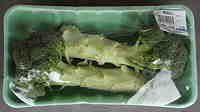
broccoli $1.57 - compare with Japan vegetables:
just as expensive but of much inferior quality
private sector
Stuff imported from Venezuela, which has been devaluating the bolivar for as long as I can remember, just keeps getting more and more expensive here. Profit margins of 400% are not unusual.
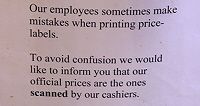
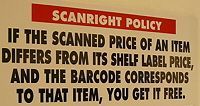
These 2007 photos indicate the difference between a monopoly society (ours) and a competitive one (like South Africa). In Holland, the warenwet law states that an item must be sold for the price it is offered at, but the South African supermarkets go even further. In the Curaçao Centrum supermarket, on the day I took that picture the bar code reader where a client can check for himself was out of order.
Small wonder my daughter did not understand how they could teach her at school that, the more you sell of a product, the cheaper it becomes: Here, it's the other way 'round. Then, if you feel you need more money, you don't try to cut costs; you just raise prices! (The government acts likewise.) Simple, huh? it gets more expensive no matter what.
According to Reda Social, in 2001 the 20% highest income group was 19 times as large as the lowest income group, up from 17 since 1997. 22% had an income of less than ANG12,000/US$6593. Average household income was ANG3739/US$2054, with lowest incomes at ANG1888/US$1037. Per year.Our politicians always tried for market protection; this because the high import duties were a welcome source of extra cash. For many years we had to make do with inferior car batteries, locally made Batería Léon. These were so bad, people were amazed when you told them that a European or US brand battery easily lasted for four years. Finally, to our collective relief, this factory managed to go bankrupt! Quite an achievement. Alas, others are still in business. They are feeling the pinch, especially as all market protection by way of import duties has to come to an end by 2005, and are now protesting that GATT, although signed, somehow would not apply. Their arguments are at any rate original: When their monopoly ends and they disappear as a result, the consumer will be victimized by the importers (their plural) - who will then have a monopoly!
The way the rich often get their money - by stealing it from the poor - was once more very well illustrated when Aqualectra discovered (June 2006) that water and electricity was stolen by 11 out of 63 households of Blue Bay; an exclusive community where you get the impression there are two yuppie-mobiles to each house.
The Amstel brewery started muttering dire threats that they would have to close down if they coulnd't lower their prices to compete with beer imports. This would cost seventy (70) jobs, which is amazing: Cheaper to send them home and pay them each ANG70K/year. The government gave Amstel an ANG5M discount on their taxes, but the price was not lowered at all: Amstel just pocketed the extra money. The Amstel brewery, owned by the Dutch Heineken concern (56%) and local shareholders, who also have substantial interests in soft drink manufacturing etcetera, finally announced in September 2005 they would close down production. (They went on to say no more than 55 employees would be discharged.)
At least, with the production stop, the horrible stench of the brewery has come to an end. Now let's go for the Isla refinery!

more stems than tops
and this from one of the best supermarkets
compare with Japanese greengrocer
| Will you look at this! |
| After all those ups and downs with importing beer and soft drinks from Venezuela, the final upshot on Coca-Cola and Pepsi-Cola is like this: The only size bottle from Venezuela you can buy in the supermarkets is the 2 liter size (May 2006). This costs ANG2.95 for Coca, and 3.95 for Pepsi while you can get 3 bottles of local Pepsi for the price of 2.) As you can bet they're still the same price in Venezuela, it's one more proof that 1 Pepsi is more popular here than Coca, and that 2 our esteemed grocers apply the highest profit margin they can get away with rather than a reasonably fair one. Then, in August 2006 the Pepsi price was raised to ANG4.95/2 liter bottle. Can you imagine people are actually buying those, with the cheaper ones sitting right next to them? UPDATE July 2010: Imported Pepsi has long since disappeared from the shelves; the standard price for Coca-Cola/2l from Venezuela now is 3.55, but there are places where it's 3.25. |
It took many years, until end 2004, before they wised up, but finally the local hoteliers started clamoring for the same rights any foreign chain gets when opening a hotel here - tax holidays etcetera. One wise guy even stated he might sell out to a foreign chain, on paper, and pick the profits. It surely is a thought.Anyway, it seems, to me at least, more efficient to import a finished article than import raw materials, process them here and having to ship all that up and down. But I'm an enfant terrible, I know. While Marquis seems to think I'm enough of a big shot to get listed in WHO'S WHO in Finance and Industry, they may be mistaken; still, there it is. (Same thing happened to other guys I could mention).
A Portal to the Future?
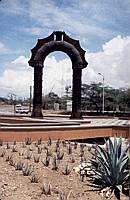
Monument built from old Shell refinery junk
on the road from Hato airport to Willemstad
(very appropriate)
energy
(The next thing that happened was that the Venezuelans started buying oil refineries wherever they could, as they soon discovered that, when you have a refinery, you have a market - not so for crude.)
Shell had one of the best safety records in the world here; since they left there have been many more accidents than before, and even fires. A lot of people had complaints about the social attitudes of Shell; they were much better than those of the government-owned company now. Worst of all, the grapevine has it that, with the horrible economic situation of Venezuela, especially since Chávez started applying his Castro-inspired theories, the refinery has stopped paying the Curaçao government rent—all money flows to Venezuela. If you expect our politicians would inform us of that, you have got a lot to learn.
While a lot of gasoline burned in the USA comes from here, we pay much more for it; about ANG1.77/liter - US$$3.86/gallon. We pay ANG0.25 per liter (US$0.53/gallon) to subsidize the tourist industry. (Venezuela started importing their gasoline back during the anti-Chavez campaign in December 2002 - to sell it there for $0.10/gallon; we then paid over 30 times that.) Energy prices are about the highest in the world (over ANG.50 or US$.28/Kw); in the Caribbean, only Antigua and Dominica are more expensive. As for water, for our (distilled sea-)water supply we pay ANG 10/m³ or US$.21/gallon; the second most expensive (Cayman Islands) is half the price. This in an extremely dry, hot and yet humid climate. Only Guyana has more expensive internet lease-lines. (September 2002 Curaçao e-Commerce Platform report in newspaper Amigoe). Before I forget: Electricity, water and communications are owned by (you'll never guess) the government. They are always about to raise prices even more, except right before elections when they are lowered, to go up back right after the votes are in. By May 2004, with FOL still in power, the island government just did not discuss higher gasoline prices, so the next government had to. 38% of the gasoline price is taxes; in an August 2004 conference this was strongly protested by the same politician, Chong, who saddled us with the extra tourism levy. Only 50% of the Curaçao gas tax is for the island government; the rest goes to the Antillean government, while some islands do not pay gasoline tax at all. The same goes for property tax and alcohol excises.
KLM has a long history on Curaçao, but this year they changed their stop on the Europe-South-America flights to Bonaire. Jet fuel there is cheaper than on Curaçao - they import it from Aruba, technically another country.
Curaçao Isla refinery
run by Venezuelan national oil company PdVSA
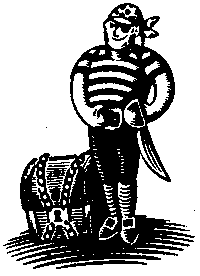
Curaçao Minister of Finance
residing in Fort Amsterdam
popularly known as the Cave of Ali Baba's 40 Thieves
drug trade
The problem here is that the government does get a cut not from this, as it's all illegal. While those traffickers do pump money into the economy by buying houses and expensive cars, they don't pay income tax, profit tax or purchase tax. Even though I would not consider you paranoid to suspect that there is a lot of money flowing into the government workers' coffers as kickbacks, that does not help in balancing the budget.
The best way out here would obviously be to legalize more drugs besides alcohol, tobacco and coffee or tea. But why push for this, if you get your kickbacks? See the little problem?
I'm not going any farther into this, but do recommend this book:-
Overcoming a Failed Public Policy
Steven Wisotsky




We mostly steer clear from the drug problem here; but this is getting harder and harder. A few years ago, a man who came to join the American FOL anti-drug base here, was found in a bordello, dead from an over-dose, in less than an hour after his arrival. There was a notorious case where a Royal Dutch Navy plane was used to transport cocaine to Holland. In August 2006, there was a case in court about 34 kilos of coke smuggled with the Royal Navy ship van Speijk. Says a defence lawyercontrol aboard these ships is so intense, it's impossible to smuggle anything on them.What a laugh - everybody knows these ships have been used to import beer illegally from Holland in the past as well, and the devil knows what else.
Once and again, why not stop this foolishness by simply liberating all drugs? We all know for a fact that some politicians are involved in the trade, and so are customs officials and police officers. All these use their functions to help them pushing drugs - the last thing they want is liberating drugs, as that would mean the end of that profitable line. Meanwhile, to keep up appearances, all passengers arriving at Schiphol, are hassled - while containers freely unload in the Dutch harbors.
At least, making drugs freely available would end the insane profit margins and, thus, the criminal organisations that thrive on them.
tourism
Now that deserves a chapter of its own.
Like prostitution, tourism pays money, no doubt about it.
Also like prostitution, there's a lot of competition out there.
But that's not even the worst thing about it.
for money we use the Antillean Guilder
US$1.00=ANG1.78/ANG1.00=US$0.56
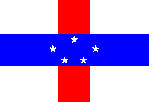 |
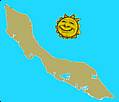 |
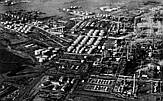 |
| politics | geography climate |
tourism |

Curaçao Island live in real time
visit our circus—laugh and weep at

SEARCH this site or the Web

copyright notice
all material on this site, except where noted
copyright © by , curaçao
reproduction in any form for any purpose is prohibited
without prior consent in writing
